Humans
Sign up for our newsletter
We summarize the week's scientific breakthroughs every Thursday.
-
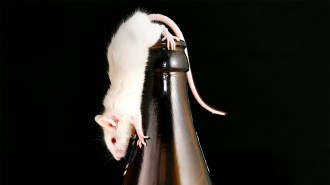 Health & Medicine
Health & MedicineA new gel stops mice from getting too drunk
The iron-milk substance can break down alcohol fast and protect against liver damage in mice. Scientists hope to test the gel in people next.
-
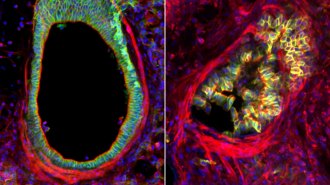 Health & Medicine
Health & MedicineChronic asthma could be caused by cell overcrowding in the airways
Identifying drugs to reduce the excessive expulsion of cells in the lung lining could reduce the damage of chronic asthma.
-
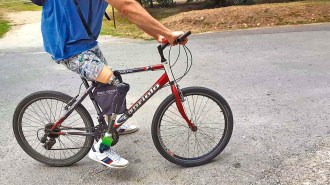 Health & Medicine
Health & Medicine50 years ago, phantom pain was blamed on misfiring nerves
Researchers now know that the cause of post-amputation pain is more complex, which is leading to new treatments.
-
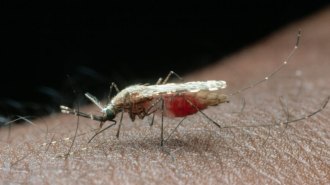 Animals
AnimalsGetting wild mosquitoes back to the lab alive takes a custom backpack
The new low-tech transportation method could help scientists in Africa assess if malaria-carrying mosquitoes are resistant to a common insecticide.
-
 Psychology
PsychologyOnline spaces may intensify teens’ uncertainty in social interactions
Little is known of how teens learn about emotions online and then use that knowledge to cope with social uncertainty during in-person encounters.
By Sujata Gupta -
 Health & Medicine
Health & MedicineCollege students want to help during an opioid overdose but don’t know how
A survey of college students reported many are comfortable calling emergency services for an overdose, but fewer know how to intervene with naloxone.
-
 Health & Medicine
Health & Medicine50 years ago, margarine’s ‘healthy’ reputation began to melt away
In the 1970s, scientists began to suspect that margarine was bad for heart health. A key component, artificial trans fat, was a major factor.
-
 Archaeology
ArchaeologyThese Stone Age humans were more gatherer than hunter
Though not completely vegetarian, the Iberomaurusian hunter-gatherers from North Africa relied heavily on plants such as acorns, pistachios and oats.
By Jude Coleman -
 Humans
HumansRain Bosworth studies how deaf children experience the world
Deaf experimental psychologist Rain Bosworth has found that babies are primed to learn sign language just like spoken language.
By Meghan Rosen -
 Health & Medicine
Health & MedicineIrregular bone marrow cells may increase heart disease risk
Over time, bone marrow stem cells develop key genetic errors and pass them on to immune cells. This may increase the risk of developing heart disease.
-
 Health & Medicine
Health & MedicineTraces of bird flu are showing up in cow milk. Here’s what to know
We asked the experts: Should people be worried? Pasteurization and the H5N1 virus’s route to infection suggests risks to people remains low.
-
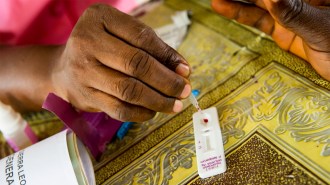 Health & Medicine
Health & MedicineMalaria parasites can evade rapid tests, threatening eradication goals
Genetic mutations are making Plasmodium falciparum, parasites that cause malaria, invisible to rapid tests. New, more sensitive tests could help.